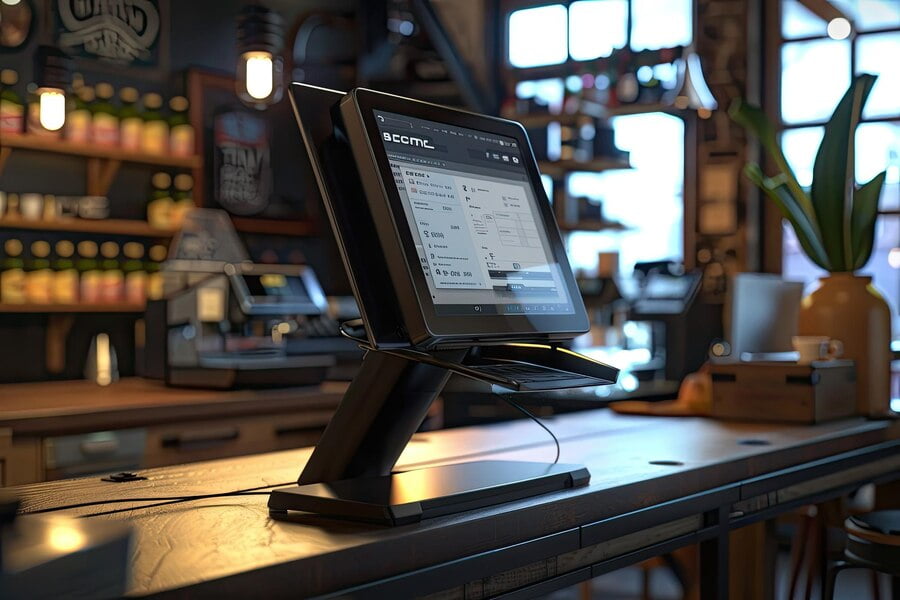How POS Systems Improve Accuracy and Reduce Human Error

In the fast-paced world of retail and hospitality, accuracy is paramount. Errors in sales transactions, inventory management, or employee records can lead to significant financial losses and operational inefficiencies. One powerful solution to this problem is the adoption of Point of Sale (POS) systems. These systems have evolved from simple cash registers to sophisticated digital platforms that enhance accuracy and minimize human error. Here’s how POS systems achieve this.
Automated Data Entry
One of the primary ways POS systems improve accuracy is through automated data entry. Traditional methods of recording sales, such as manually inputting prices and quantities, are prone to human error. Mistakes in data entry can lead to incorrect pricing, inventory discrepancies, and ultimately, customer dissatisfaction.
POS systems automate these processes by scanning barcodes or using pre-programmed product lists. This automation ensures that the correct prices and product details are consistently applied, reducing the risk of human error. The accuracy of automated data entry is particularly beneficial during busy periods when employees might rush and make mistakes.
Real-Time Inventory Management
Effective inventory management is crucial for any business, and POS systems excel in this area. Traditional inventory tracking methods often involve manual counts and records, which are time-consuming and error-prone. POS systems, however, update inventory levels in real time as sales occur.
This real-time tracking means that businesses always have an accurate view of their stock levels. By knowing exactly what is in stock, businesses can avoid overordering or running out of popular items. Additionally, POS systems can generate alerts when stock levels are low, ensuring timely reordering and minimizing the risk of stockouts.
Integrated Payment Processing
POS systems integrate payment processing, which reduces errors related to financial transactions. Manual calculations of totals, taxes, and discounts can lead to mistakes that impact both the business and the customer. POS systems automatically apply taxes, discounts, and other pricing rules, ensuring that the final amount is accurate.
Furthermore, integrated payment processing reduces the risk of cash handling errors. With features like card payments and digital wallets, transactions are processed electronically, eliminating the need for manual cash handling and reducing the chances of counting errors or fraud.
Employee Performance Tracking
Another area where POS systems enhance accuracy is in tracking employee performance. Manual tracking of sales and hours worked can be inconsistent and error-prone. POS systems provide precise data on individual employee transactions, work hours, and productivity.
This accurate tracking allows managers to identify top performers and those who may need additional training. By having a clear understanding of employee performance, businesses can make informed decisions that improve overall efficiency and accuracy in operations.
Read also: Leveraging POS Data for Business Growth
Reducing Administrative Burden
The administrative burden associated with manual record-keeping is significant and often leads to errors. POS systems streamline administrative tasks by automatically generating reports on sales, inventory, and employee performance. These reports provide accurate and up-to-date information that can be used for strategic planning and decision-making.
Automating administrative tasks not only improves accuracy but also frees up valuable time for employees and managers to focus on more critical aspects of the business. This efficiency gain can lead to improved service quality and customer satisfaction.
Enhancing Customer Experience
Accuracy is crucial for maintaining a positive customer experience. Errors in transactions, such as incorrect pricing or missing items, can lead to customer dissatisfaction and loss of trust. POS systems help mitigate these issues by ensuring that every transaction is recorded accurately.
Additionally, POS systems can store customer information and purchase history, allowing businesses to offer personalized service and targeted promotions. This level of accuracy and personalization enhances the overall customer experience, leading to increased loyalty and repeat business.
Compliance and Reporting
Compliance with tax regulations and reporting requirements is another area where accuracy is essential. Errors in tax calculations or financial reporting can result in legal issues and financial penalties. POS systems automatically calculate taxes and generate accurate financial reports, ensuring compliance with regulatory requirements.
By maintaining accurate records, businesses can easily prepare for audits and provide the necessary documentation to tax authorities. This level of accuracy and compliance reduces the risk of legal complications and financial losses.
Conclusion
In conclusion, POS systems play a critical role in improving accuracy and reducing human error in various aspects of business operations. By automating data entry, providing real-time inventory management, integrating payment processing, tracking employee performance, reducing administrative burden, enhancing customer experience, and ensuring compliance, POS systems help businesses operate more efficiently and effectively. As technology continues to advance, the capabilities of POS systems will only expand, offering even greater potential for accuracy and error reduction in the future.
Visit our site at www.dibtech.com.au
Visit our YouTube channel for tutorials Dibtech






